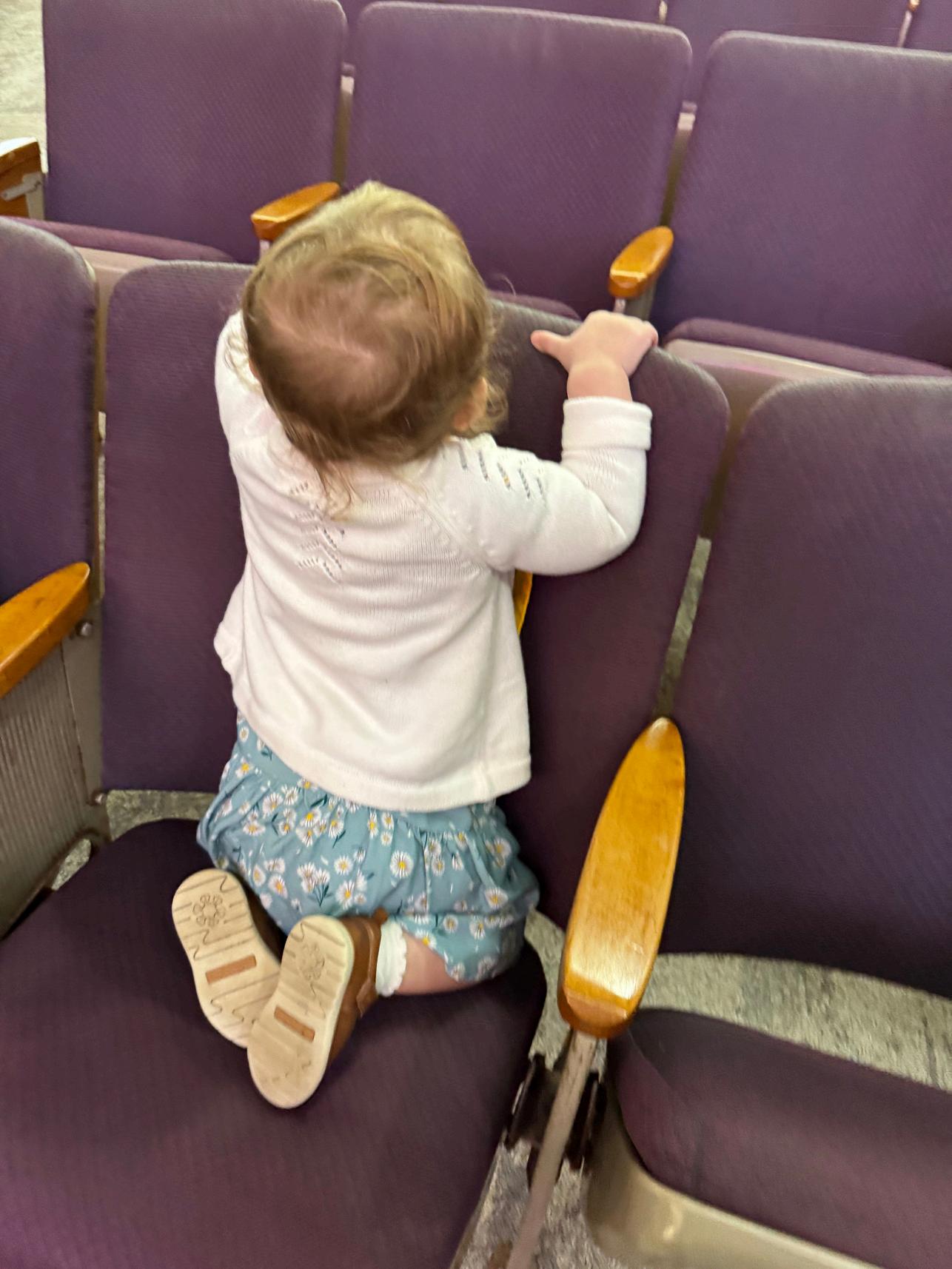PRIDE PRIDE

Oscar Ascher*
Elizabeth Berger*
Murray Cohen*
Sylvia Cooper
Lena Cooperman*
Frank Dee*
Benjamin Etsten*
Hy Fortunoff*


Oscar Ascher*
Elizabeth Berger*
Murray Cohen*
Sylvia Cooper
Lena Cooperman*
Frank Dee*
Benjamin Etsten*
Hy Fortunoff*
Ruth Frankel Zamoff
Adele S. Gilbert
Sallie Goldwater* We
Benjamin Hershkowitz*
Charlotte Brown Katon
Johanna LaVelle
Ed Levine
Arthur Marks*
Norma Platner
Gerald Rubin
Allen Samuels*
Stanley L. Sonneborn*
Meryl Stern
Agatha Woolner*
*Denotes plaque in Memorial Alcove
Reach out to us with any questions.
Amy L. Morrison - Rabbi
727-347-6136 - RabbiMorrison@TempleBeth-El com
Tara O’Donnell - Director of Finance & Operations
727-347-6136 - Tara@TempleBeth-El.com
Jennifer Hannon - Director of Early Childhood Center 727-350-5885 - JennHannon@TempleBeth-El.com
Tracy Nash - Bookkeeper
727-347-6136 - Bookkeeper@TempleBeth-El.com
Tovah Feld - Communications & Engagement Coordinator 727-347-6136 - Tovah@TempleBeth-El.com
Allison Fowler - Office Administrative Assistant 727-347-6136 - Allison@TempleBeth-El.com
Mike Shapiro - Temple President
727-347-6136 - President@TempleBeth-El com

Amy L. Morrison & Joyce Liu
Parshat Chukat and America’s Independence Day both speak to the deep, often painful path to freedom a path paved with paradox, sacrifice, and unwavering hope
In Parshat Chukat, we encounter the mysterious law of the parah adumah, the red heifer. It’s a ritual that defies logic: it purifies the impure but renders the pure impure. It’s a reminder that true leadership and service often require giving of ourselves in ways others may never see or understand. This portion also marks the loss of two towering figures Miriam and Aaron reminding us that even in the wilderness, even when we grieve, the journey must go on

On July 4th, we celebrate the birth of a nation founded on ideals of liberty and equality. Yet like the Israelites in the desert, the American journey has never been simple. The fight for freedom was and still is fraught with contradiction and sacrifice. The founders declared independence even as slavery persisted. Progress has always demanded courage, self-reflection, and the willingness to serve something greater than ourselves
This Shabbat, as fireworks light the sky and Torah is read in our synagogues, we are called to reflect on what freedom truly means. Not just political freedom, but spiritual and moral freedom. Not just independence, but interdependence caring for one another, standing for justice, and living with purpose
Let this Shabbat be a time to recommit to our values, to our communities, and to the sacred work of building a freer, more compassionate world. That is our American promise. That is our Jewish calling.

Tuesday, July 8
2pm - Bereavement Group
Friday, July 11
5:30pm - Early Oneg 6pm - Erev Shabbat Services

Located nSt.PetersburgonFlorida'sbeautfulwestcoast,TempleBeth-El sa ReformJewishcongregationthathasservedthisareasnce1928andis focusedonstrengthenngrelationshpsandmakingconnections Wearea welcomingReformcommunityforJewishandinterfaithhouseholdsto experienceanupliftingandjoyfulsenseofbelongingasweseektoconnect ourmemberswitheachotherandthegreatercommunityandworldaroundus. Enjoyandhavea ShabbatShalom!
Parashat Chukat: Numbers 19:1-22:1
Saturday, July 5, 2025 / 9 Tammuz 5785
The laws of the red heifer to purify a person who has had contact with a corpse are given. (19:1-22)
The people arrive at the wilderness of Zin. Miriam dies and is buried there. (20:1)
The people complain that they have no water. Moses strikes the rock to get water for them God tells Moses and Aaron they will not enter the Land of Israel (20:2-13)
The king of Edom refuses to let the Children of Israel pass through his land.
After Aaron's priestly garments are given to his son Eleazer, Aaron dies. (20:14-29)
After they are punished for complaining about the lack of bread and water, the Israelites repent and are victorious in battle against the Amorites and the people of Bashan, whose lands they capture (21:4-22:1)

Relax! God put the wiggle in children. Don’t feel you have to suppress it in our sanctuary or chapel.
Sit towards the front where it is easier for your little ones to see and hear what is happening on the Bima. They tire of seeing the backs of other’s heads.
Quietly explain our rituals and sing or clap when appropriate. Children learn liturgical behavior by copying you.
If you need to leave services with your child, do so, but please come back. Remember that the way we welcome children in synagogue directly affects the way they respond to coming to synagogue, to God, to one another. Let them know that they are welcome in this house of worship, here, at Temple Beth-El.

